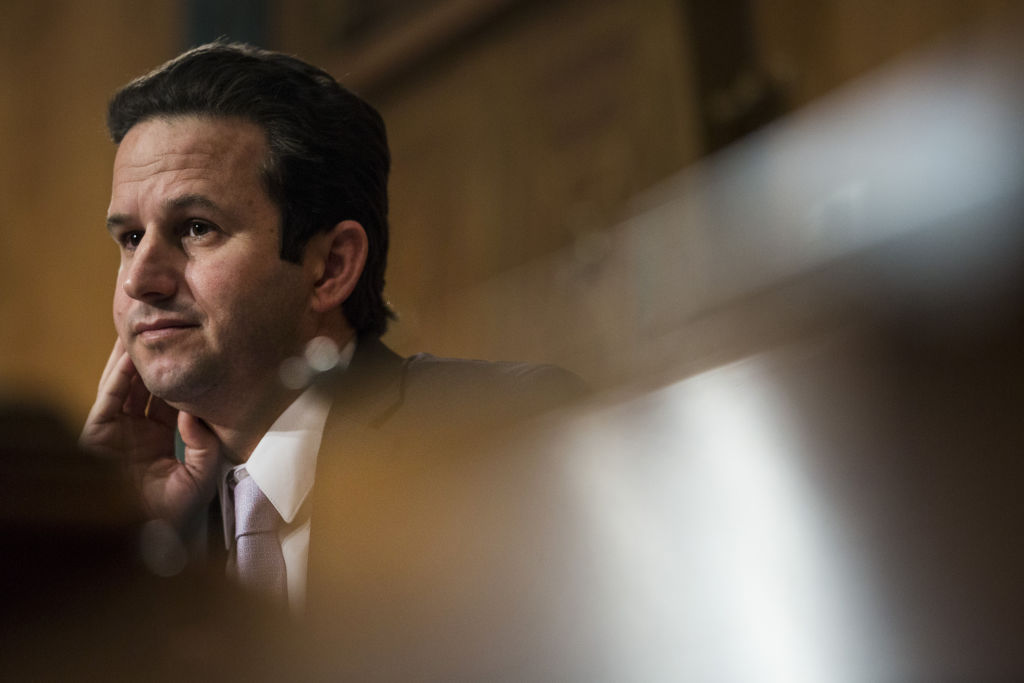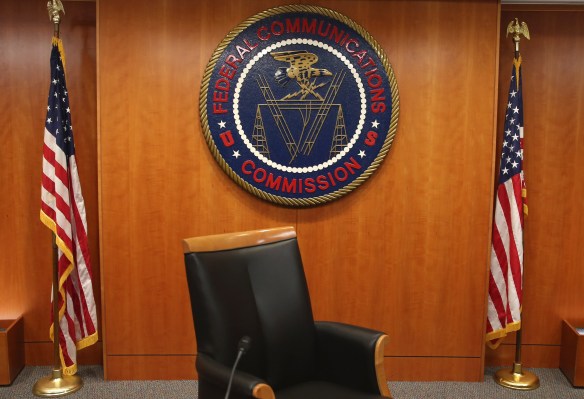Following the news yesterday morning that the FCC will be voting on the proposal to kill net neutrality come December 14, officials and advocacy organizations have been issuing statements left and right decrying the impending upending of the internet as we know it. Senator Brian Schatz (D-HI) is among them, but took a moment to talk with TechCrunch about his misgivings in a bit more detail.
“We’re not surprised, but we are disappointed,” he said. “I’ve spoken with the Commissioner numerous times on this and I’d hoped he would take a less partisan path.”
“Partisan” may strike some as a strange description for an issue that is largely one concerning technical details and legal precedents, but if net neutrality was ever merely an issue of bits and bytes, it has become a politically charged one over the last few years. Commissioner Pai’s own repeated insistence that the 2015 rules were a plot by the Obama administration confirm that he and his team consider it so, as well.
“People in the tech community may not like politics because it seems less interesting or less pure than what they’re doing,” said Senator Schatz. “But you see the result of not caring about politics. This is no longer an abstract problem.”
We can generate a lot of emails and that’s great. But the moment those emails are converted to votes, we win.
“It always helps to build pressure at the FCC level,” he continued, “but this is about us losing elections. They have a 3:2 edge at the FCC because we lost. We have to understand that when we vote in 2020, we’re voting on the future of the internet. We can generate a lot of emails and that’s great. But the moment those emails are converted to votes, we win.”
Senator Schatz has been outspoken about his opposition to the current FCC plan, and along with a handful of others in both houses of Congress, notably the House Energy and Commerce Committee Democrats, has put pressure on the Commission to explain itself beyond the occasional well-manicured public statement.
But despite their best efforts, the vote appears to be more or less a done deal, Senator Schatz agreed.
“I think we have a chance in the short run to win through litigation,” he speculated, “and I personally will be exploring the possibility of a legislative compromise.”
I personally will be exploring the possibility of a legislative compromise.
“My point of view — and by the way, I had this point of view when it was President Obama and Tom Wheeler, to the chagrin of my progressive friends — is that we should legislate,” he said (I took his comment to mean it would have been unpopular in 2014 to embark on a parallel track to moot an effort endorsed by the president). “That would provide the stability that comes with a bipartisan bill. But it’s not at all clear to me that in this polarized environment that we can find the common ground.”
Nor is it clear that a bipartisan bill would provide the stability he envisions; the 1996 Telecommunications Act, which is at the heart of all this conflict, was itself passed with quite a bipartisan crowd, but has been the subject of endless debate and litigation. Still, it has provided a strong platform on which, at least, we can argue over details.
Alas, Senator Schatz suggested any such bill is still a ways off:
“The Republicans interested in a compromise seem interested in enshrining ‘no blocking, no throttling, no paid prioritization’ into the statute. But if the FCC doesn’t have rulemaking or enforcement authority, then that statute is meaningless.”
 That would be the case if the FCC removes broadband (mobile and fixed) from the Title II classification, which applies to telecommunications services and allows the Commission broad authority over them. Without that authority, many of the existing rules would be unenforceable.
That would be the case if the FCC removes broadband (mobile and fixed) from the Title II classification, which applies to telecommunications services and allows the Commission broad authority over them. Without that authority, many of the existing rules would be unenforceable.
“The good news is the Republicans have started to say the right things about net neutrality,” said the Senator. “The bad news is we’re not particularly close on what a bill would look like.”
He agreed that the cynical rollback of privacy rules via Congressional Review Act in March likely helped galvanize the electorate and perhaps cause a few people to cross party lines in order to better address the concerns of voters. (Listening to one’s constituency is unusual in politics, but not entirely unheard of.)
“I think the privacy CRA awakened a giant, but now we have to do the hard work of organizing,” said the Senator. “We have the beginnings of a real powerful coalition, but we haven’t converted it to votes and that’s why we’re losing.”
I remarked that sounded a bit gloomy, but that surely such beginnings are reason to be hopeful.
“It’s absolutely hopeful!” he said. “It’s a brand new movement — just one that’s used to interacting with itself online. This has to be a real political movement that does things in real life. We’ve got work to do.”
